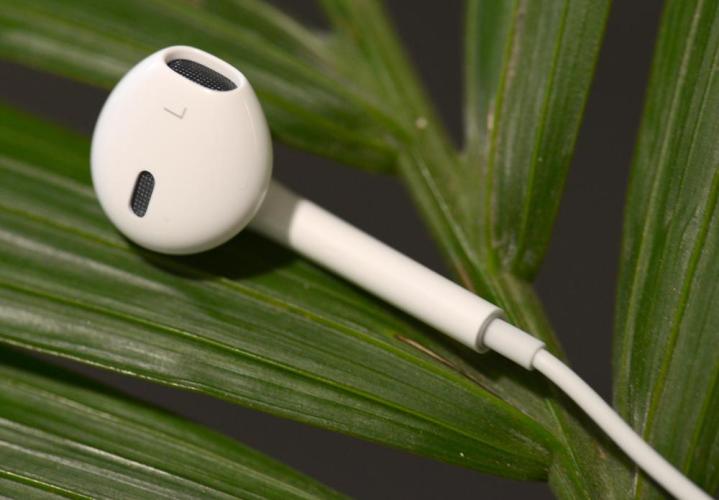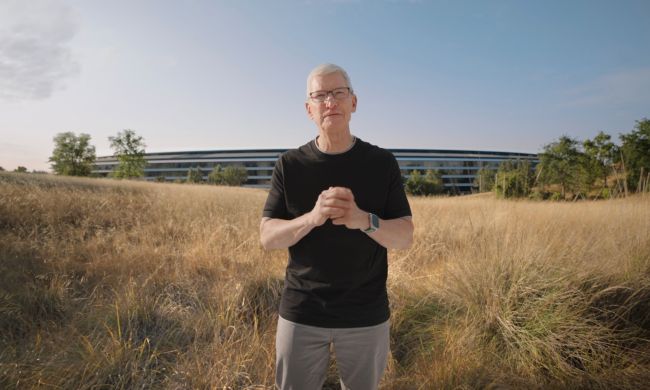
Supporting evidence has emerged from countless sources over the past few months, but the most substantive report came on August 30. Apple tech blog MacRumors uncovered Eurasian Economic Union (EAEU) certificates referencing “AirPods,” the rumored wireless variant of Apple’s wired EarPod headphones. The paperwork lists Apple Inc. as the filing party, and the company’s California address as the trademark application’s point of origin.
Now, however, it looks like Apple may be going a step further. Most have speculated that Apple would use Bluetooth as a way to connect its wireless earbuds, but recent reports suggest that Apple may debut a new technology similar to Bluetooth instead. Analyst Ming-Chi Kuo believes the addition of the chip in the iPhone will pave the way for other wireless interactions with the iPhone, including with smart home accessories and smart cars.
“Apple will likely have its own-designed Bluetooth-like communication chip and launch own-brand Bluetooth headphones targeting the high-end market, with Beats positioned in the midrange market,” Kuo wrote in a report. That latter point also lines up with rumors that Apple will reveal new Beats branded headphones at the September 7 event, leaked last week by French website iGen.fr.
Interestingly, in a completely separate Digital Trends interview exclusive, Bragi CEO Nikolaj Hviid also hinted at some sort of new streaming technology that could come from “a very very big manufacturer” in the near future. Hviid, whose company makes the popular Dash wireless earphones, claimed the new technology would allow for a phone to send dual streams — one to each Bluetooth earbud — simultaneously, as opposed to the current method, which typically sends a single stream to the right earpiece that must then be split and rerouted to the left earpiece. That method is especially tenuous with totally wireless earbuds, as the left audio information must be retransmitted wirelessly.
“If you actually make a smartphone, you can build in some software and a Bluetooth chip that can transmit up to two or more devices conveniently,” Hviid said. “That way, the phone can transmit to both the right and the left at the same time.”
“If someone were launching something next week that would be completely wireless headphones, and wanted to save the most money, it would be transmitting Bluetooth from the phone to the right and left device conveniently,” Hvvid continued, seemingly hinting at Apple’s September 7 event. “I’m just saying if I was a smartphone manufacturer I’d do it like that. It would be the cheapest way.”
Meanwhile, Bragi unveiled its own new wireless earbuds on Monday, which use standard Bluetooth streaming, aimed directly at the new iPhone 7. Called The Headphone, the fully wireless earbuds will retail at $149. If Apple does unveil a new, low-energy streaming technology with the iPhone 7, it’s likely that tech would launch in addition to traditional Bluetooth streaming in order to keep the phone compatible with the wide array of Bluetooth headphones already on the market and in production.
As for the AirPods themselves, the August 30 filing isn’t the first telling trademark to emerge in recent months. In October of last year, MacRumors discovered a trademark for “AirPods” filed earlier in the year by a Delaware-based company called Entertainment in Flight. As the blog notes, it exhibits the telling characteristics of the sort of shell companies Apple typically uses to register trademarks clandestinely.
Pouring fuel on the speculation fire is a feature from Forbes on the reported status of Apple’s wireless earbuds. Sources close to the publication said that Apple had developed an energy-efficient Bluetooth chip with technology acquired from Passif Semiconductor, a silicon startup specializing in “switch-based wireless transceivers with low power consumption and a small footprint.” The Apple specialists at 9to5Mac have also long predicted “completely wireless” earbuds from Apple, with noise-cancelling microphones, tight integration with Apple’s Siri voice assistant, and a companion carrying case that doubles as a charging cradle.
Streaming technology aside, Apple is widely expected to position its “AirPods” as premium iPhone accessories rather than bundled, in-the-box audio solutions. Photos of EarPods with a Lightning connector have emerged on Chinese social media in recent months. For his part, Kuo also suggested that the AirPods would be a separate accessory, predicting the iPhone 7 would come bundled instead with a pair of Lightning connected earbuds, as well as a 3.5mm adapter accessory. Fully wireless earbuds are often quite pricey, with most varieties (apart from Bragi’s latest model) starting at $250 to $300.
Wireless headphones aren’t without technical issues. Forbes cited “performance snags” as the project’s foremost challenge. And according to 9to5Mac, “battery life concerns” also dogged AirPod engineers. It’s a category-wide problem: Samsung’s Gear IconX earbuds have a quoted battery life of 90 minutes, while Motorola’s Hint last about three hours off a charger.
Could Apple’s rumored new technology be the company’s solution to those technical challenges? We’ll have to wait for Wednesday’s Apple event to find out. We’ll be covering the event extensively, so keep your browser tuned to Digital Trends for all the latest Apple news and analysis.
Updated on 09-06-2016 by Christian de Looper and Ryan Waniata: Added reports of custom technology powering wireless AirPods.


